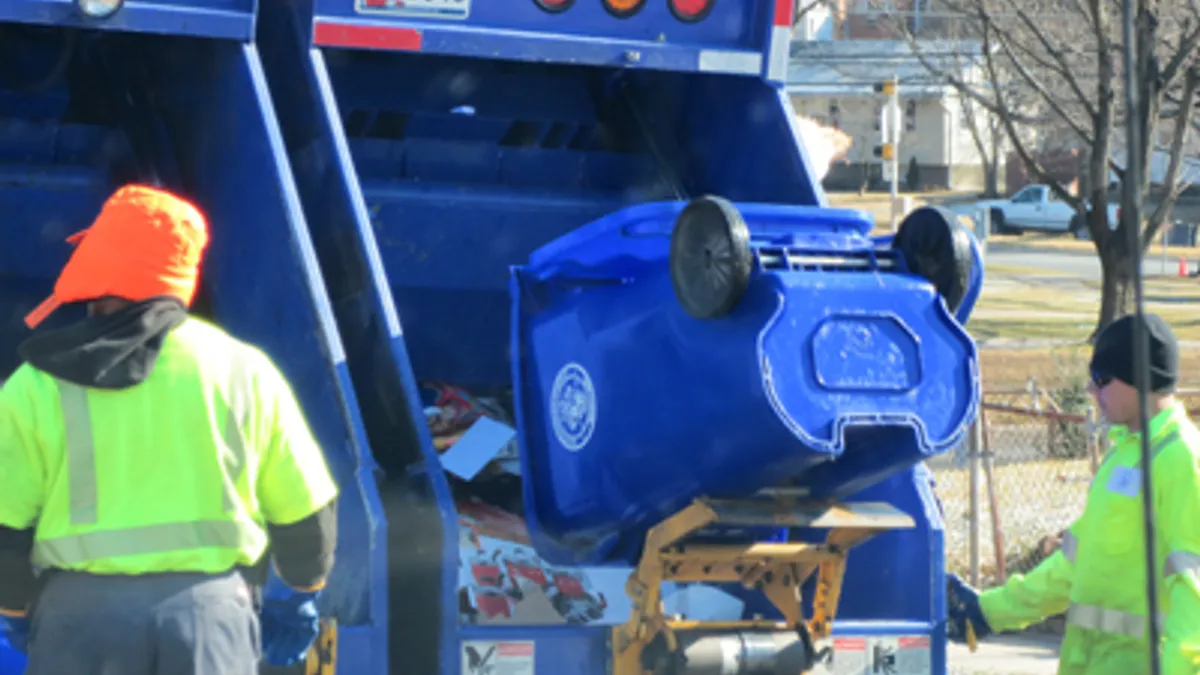Dive Brief:
- Last night, The Oakland City Council approved new rates for commercial composting services, capping the services 30% below the cost of trash services. The Council also voted against a proposal to raise recycling rates by 10%, despite California Waste Solutions' complaints that Oakland overestimated the number of households it serves by 10,000 — which has caused a loss in expected revenue for the company.
- In order to decrease commercial composting costs, the city had to negotiate a new contract with Waste Management by cutting extra benefits, such as an $800,000 local customer service center.
- Although the recycling rate increase was voted down, there is a possibility that it will be reconsidered in a future meeting, according to the Contra Costa Times. There is a clause in the contract between CWS and the city that says CWS can negotiate additional increases to rates based on the "differential between the number of households assumed by CWS in their cost proposal and the number of households actually served by CWS."
Dive Insight:
After months of battling a composting fee increase, The Contra Coasta Times reported that Oakland business owners "begrudgingly thanked" the council for lowering the rate, however many owners expressed discontent with the way the process was handled.
As for the recycling rate issue, one Oakland resident suggested in the meeting that the city should be audited to determine how California Waste Solutions' deal was miscalculated. Sean Maher, spokesman for the city's Zero Waste Program, explained to East Bay Express that the 165,000 number "included a number of customers who were listed for multiple services and whom the City counted more than once."
However, Councilwoman Washington said, "I believe we need to understand where things went wrong ... It's about not repeating this."
Across the nation, industry leaders and city governments have been working to reach "zero waste" goals by promoting recycling and composting efforts. However, the costs of these efforts — many times resulting in fees for participants and customers — have been causing good intentions to backfire. Leadership and negotiations will need to be better handled in order to maintain order in towns that are following suit.














